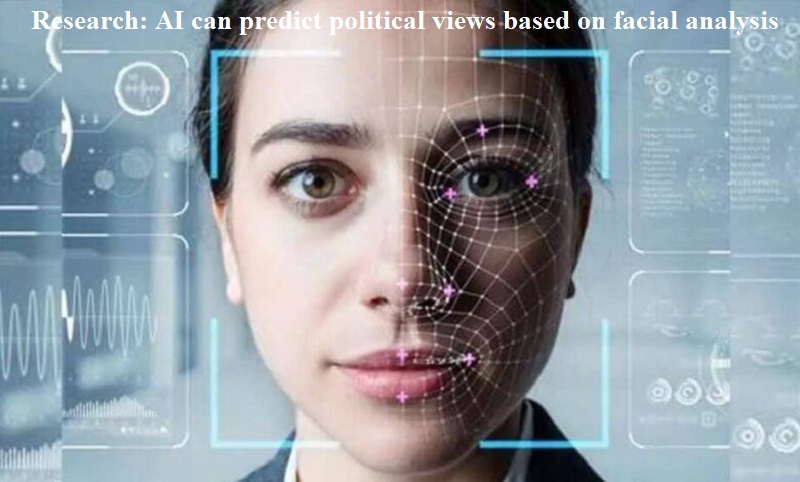
Artificial intelligence (AI) continues to push the boundaries of what was once considered possible, attracting significant attention with its impressive predictive capabilities. Whether it’s predicting stock market trends or diagnosing diseases, AI has proven its ability to analyze extensive amounts of data and provide accurate forecasts.
Now, a team of researchers from Denmark and Sweden has conducted new research suggesting that AI may be capable of predicting a person’s political views based on their appearance, raising potential concerns about privacy.
According to the study, the AI model accurately predicted individuals’ political affiliations in approximately 61% of cases. Published in the journal Nature, the research found that variations in facial expressions were linked to political views. The model observed that both male and female right-wing individuals appeared happier than their left-wing counterparts, primarily due to their smiles. On the other hand, liberal candidates displayed more neutral expressions. The study also noted that women exhibiting a facial expression of contempt, characterized by neutral eyes and one corner of the lips lifted, were associated with more liberal politics according to the model.
Additionally, the researchers discovered a correlation between a candidate’s level of attractiveness and their political ideology. Women deemed attractive based on beauty scores were predicted to have conservative views, although no similar correlation was found between men’s attractiveness and right-wing leanings. The study highlighted that politicians on the right tend to be considered more attractive than those on the left.
To demonstrate the privacy threat arising from the combination of deep learning techniques and easily accessible photographs, the researchers used a dataset of 3,233 images of Danish political candidates. They employed facial recognition and predictive analytics to assess facial expressions and attractiveness scores.
The implications of this ability raise concerns regarding how AI can perpetuate stereotypes and biases. AI models trained on preconceived notions of beauty standards and gender can reinforce existing stereotypes, potentially leading to biased outcomes in various domains, including hiring decisions. The researchers noted that facial photographs are commonly available to potential employers, who may willingly discriminate based on ideology. Consequently, individuals should be aware of the elements of their photographs that could affect their chances of employment. The study’s results also shed light on the implications of advanced technologies, such as AI, in reinforcing perceptions about specific demographics.

Post Your Comments